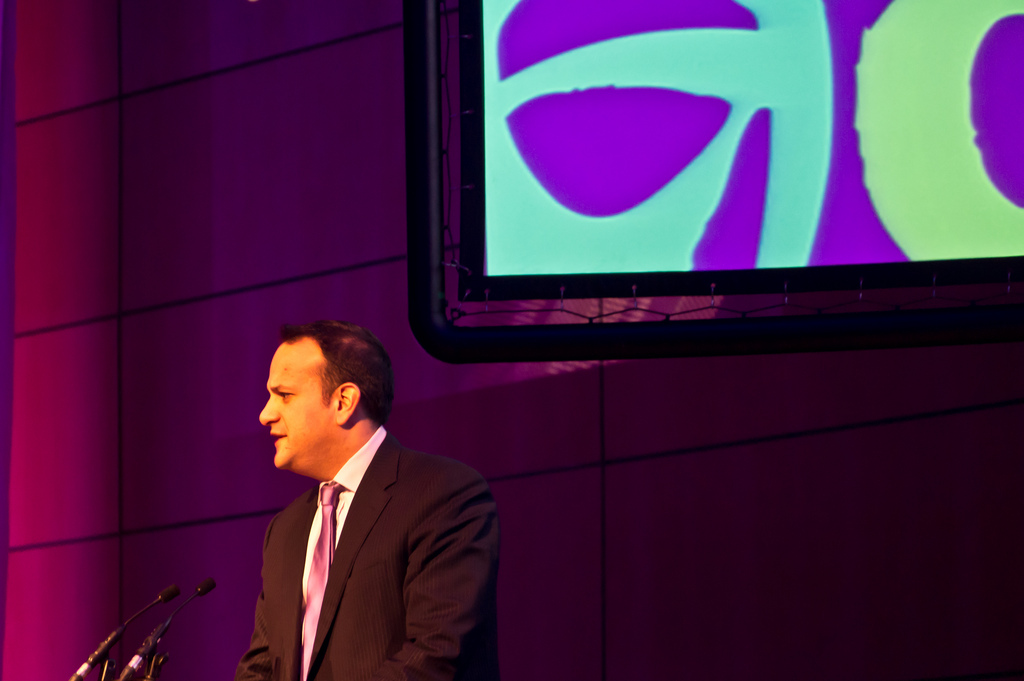Colm Finlay | LGBT Correspondent
When Leo Varadkar, the Minister for Health, publicly came out as gay on Sunday, he said that his sexuality was no secret, but that it was not something he felt comfortable discussing until recently. The response to his coming out has been largely positive, both in mainstream media as well as on social media. Many online commentators have expressed apathy towards his announcement, saying that his sexuality does not matter or is irrelevant, and some have gone so far as to ask that he simply “sort out the hospitals”. Clearly, Irish society has got to a point where, in some sense, it is safe to come out, even if you hold an important position in public life. That being said, Varadkar’s coming out was certainly a courageous act and one that was not divorced from personal or professional risk, and it was also certainly an important act in the fight against homophobia.
Varadkar’s coming out was certainly a courageous act and one that was not divorced from personal or professional risk, and it was also certainly an important act in the fight against homophobia.
Harvey Milk argued that homophobia will and can only ever be defeated if all those who are LGBT come out and LGBT people are seen in every family and every workplace, and then every myth, every lie and every innuendo will be destroyed. He said: “All young people, regardless of sexual orientation or identity, deserve a safe and supportive environment in which to achieve their full potential.” For many young LGBT people in Ireland coming out is still a major issue, and even being able to talk about and explore their sexuality, or indeed gender, is an impossibility in environments which are not safe and supportive.
It is both important and beneficial for LGBT people to have “safe” places in society. These places should, of course, be both physically and emotionally safe. Having such a place allows people who are LGBT, as well as those who may be questioning their own gender or sexuality, to discuss their experiences and feelings with other people who may be going through, or have gone through, the same experiences, and to come to terms with their own identity. It further allows people the opportunity to converse, make friends, meet potential partners, and simply have fun. The question must be raised, though, where are these places and are there enough of them out there.
Clearly, there is more than just one kind of safe place. There are spaces like the Q Soc room in House 6 and Outhouse on Capel Street where you can have a coffee and conversation during the day, and then there are bars and clubs to socialise in the evenings. With the closing of the Dragon Club last week, there is unfortunately at least one fewer safe place.
I talked to Q-Soc Auditor, Robert Milling about the importance of LGBT safe places. He said: “The provision of safe spaces for LGBTQIA people is vitally important. It allows for honest and open discussion and exploration of people’s feelings and identities and normalises the experience of being LGBTQIA. The safe space policy we operate under in the Q Soc room aims to ensure that everyone is included and no one is alienated, in the room no one is asked what their sexuality or gender identity is, we simply provide a place where people can be themselves and not fear the rejection, awkwardness or ignorance which they might experience in a heteronormative environment.”
For many young LGBT people in Ireland coming out is still a major issue, and even being able to talk about and explore their sexuality, or indeed gender, is an impossibility in environments which are not safe and supportive.
Club night promoter and former TCDSU Welfare Officer, Cormac Cashman had something similar to say” “There are a good few spaces in Dublin that are ‘gay’ spaces, but not really enough. When you consider that casual homophobia exists in almost every facet of Dublin, it’s easy to understand why we want and need ‘gay spaces’… It’s tricky to feel comfortable holding your lover’s hand when it draws attention, whether the attention is negative or just curious. In a ‘gay space’ you can interact with each other affectionately and not draw any attention.”
Clearly, in a society where homophobia still widely exists, it is important for these places not only to exist, but also to flourish. Unfortunately though, many of these resources only exist in city centre and not in the suburbs or in many rural parts of Ireland. G-Bar, the sole LGBT bar in Galway City, closed down late last year.
Ideally, the Ireland of the future will not need LGBT safe places at all, because society itself should be an LGBT safe place. But for now that is not the case. Iit is vital that at least one avenue exist which is accessible and safe for all LGBT people, and we should cherish the places we do have.
Photo by William Murphy







